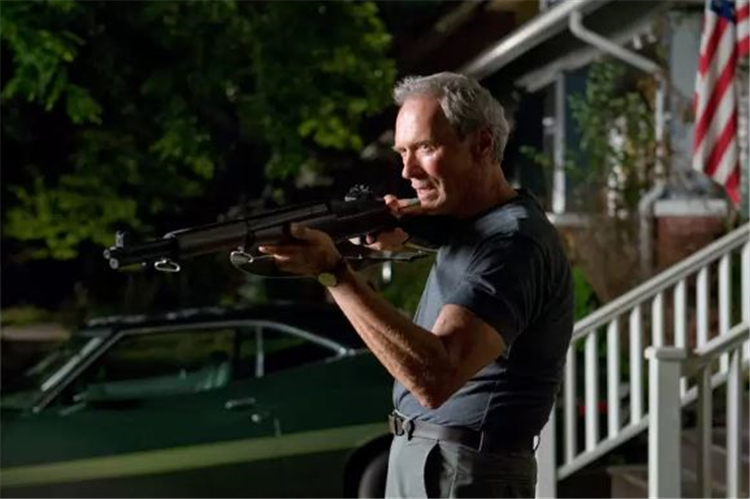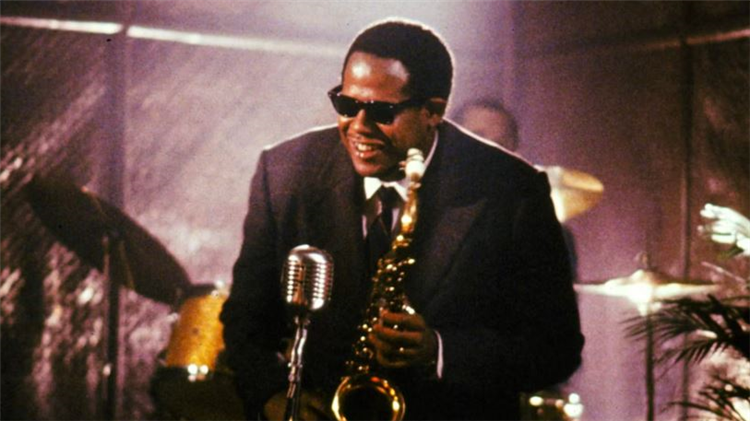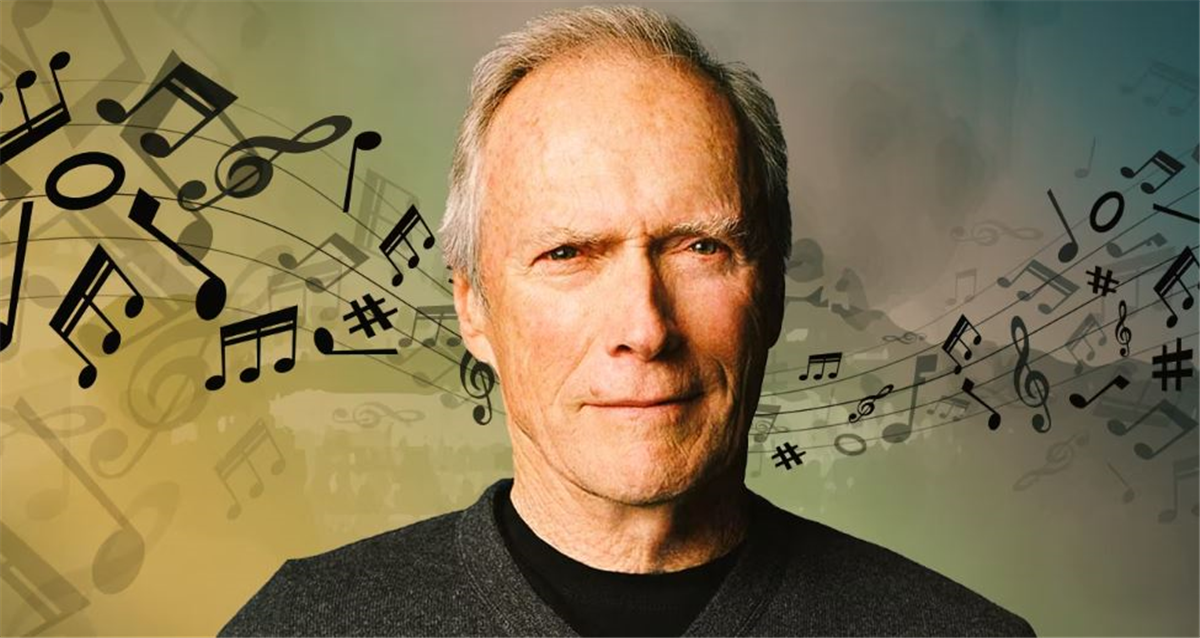Clint Eastwood is associated with many things: Westerns, pistol-wielding outlaws, true stories about scrutinized everyday heroes, and maybe even that time he talked to an empty chair. With such a storied and prolific career, his repertoire is as eclectic as any filmmaker in history, so much so that most people are oblivious to his passion for jazz music. When he’s not acting or directing movies, you can often find Eastwood sitting in front of a piano. In fact, most of Eastwood’s recent films have been scored by the man himself or feature his piano compositions, one of which can be heard during the end credits of Gran Torino. His soothing and inconspicuous scores represent an alternate side to the beloved movie star valorized as an icon of traditional masculinity. It seemed like an odd choice for Eastwood to direct Bird, the story of the brilliant but tortured jazz saxophonist, Charlie Parker, but his love of music, as well as his sympathy toward the burden of striking a chord between wellness and creating great art, allowed him to make his most underappreciated film.
Clint Eastwood’s Creative Freedom and Passion for Jazz Led To ‘Bird’
By the late 1980s, Eastwood perfected the auspicious “one for them, one for me” model with Warner Bros. In between sequels to Dirty Harry and Every Which Way but Loose, he would direct meditative Westerns like Pale Rider, released during a time when the genre was not in vogue, or an offbeat road trip musical comedy, Honkytonk Man. In 1988, the same year as the fifth and final Dirty Harry installment, The Dead Pool, Eastwood stepped away from the screen and exclusively took directing duties for Bird. The film follows the troubled life and career of the famed jazz musician, Charlie “Bird” Parker (Forest Whitaker). Parker immediately made a name for himself while touring jazz nightclubs in New York City in the 1940s. Struggling with substance abuse from an early age, he is supported by his wife, Chan (Diane Venora), who helps him through personal demons. Parker, who died at 34 years old, revolutionized jazz with his advancement of bebop and other virtuosic techniques.
Due to a myriad of uninspiring films in the genre, music biopics are cursed with an unshakable negative connotation in the film community. Our awareness of the tropes and hackneyed conventions of music biopics was due to the sharp satirization in the cult classic comedy Walk Hard: The Dewey Cox Story. The movie should’ve been a death blow to the music biopic in the way that Airplane! stunted the popularity of the disaster epic, but with the commercial success of Straight Outta Compton, Bohemian Rhapsody, Rocketman, and Bob Marley: One Love, they show no signs of extinction. Aside from the complications surrounding historical accuracy and creative hindrances enforced by the subject or their estate, music biopics are hampered by the obligation to stuff the entire life of one accomplished artist into a feature film. While the stories of Johnny Cash in Walk the Line and Freddie Mercury in Bohemian Rhapsody differ in real life, their dramatizations fall for the same clichés and narrative beats.
‘Bird’ Avoids Many Music Biopic Tropes

To lump Bird in with the crop of familiar music biopics would be a grave disservice, as Eastwood’s film is anything but a glorified Wikipedia biography. The director, with a script by Joel Oliansky, deconstructs the genre’s tired conventions through a nonlinear narrative and fragmented structure. Running at 2 hours at 41 minutes, Eastwood’s longest directorial effort, the film is an epic in the sense of attempting to understand a mythical figure. Archive footage of the saxophonist playing on stage was hard to come by upon release, as Roger Ebert wrote in his review. Bird attempts to crystalize the legend-making surrounding Parker as a jazz genius, one whose modernization of the genre influenced music for generations to come. The film jumps from Parker’s stay in a psychiatric hospital to his early youth falling in love with jazz, to showstopping performances inside nightclubs. One minute he’s bringing the house down with a revolutionary sound on the saxophone, and the next, he’s fighting for his life as he fends off a poisonous heroin addiction. The freewheeling editing, featuring numerous flashbacks and jumps in time, channels the ambitious mind of Charlie Parker, who possessed an ingeniousness that seemed to overpower human anatomy.
Generally speaking, music biopics cram the entire story (usually with limited artistic success) of an artist’s life on the screen. They try to carry the comprehensive weight of a documentary into a narrative feature that requires a tighter dramatic pull. Bird doesn’t try to summarize its subject’s life, but rather, it captures the essence of Charlie Parker’s life that was cut short far too soon. As Ebert eloquently wrote in his review, “This is a film of music, not about it.” The narrative has the ebb and flow of a music album, with each track having its own story and personality but all sharing one commonality. In the timeline showcasing Parker’s rise to success, there is a tint of melancholy throughout his brilliant jazz numbers, as we are aware of his impending tragic downfall. Eastwood’s direction blossoms with the magistery of a swooning musical number, particularly in his photography of 52nd Street, the hub of jazz in New York City. The music sequences, emphasizing the intricacies of playing the saxophone and the intimacy of the local nightclubs, could only be made by someone with deep admiration for the art form.
‘Bird’ Humanizes a Tortured Artist and Reflects Clint Eastwood’s Relationship to Art

While many prominent directors have tackled music biopics, rarely do even the most accomplished filmmakers infuse their voices into the stories of their subject. Eastwood’s adoration for jazz and Charlie Parker is evident in his humane portrait of an artist working through the perils of the creative process. Of course, some of the most storied musicians struggled with drug addiction, which is almost automatically dramatized in your basic music biopic. In Bird, the emotional truth in the depiction of Parker’s addiction stands out from the pack. The unflinching portrait of heroin addiction does not stem from any hedonism. Richard Brody of The New Yorker wrote that Parker’s addiction “is shown as a distinctively personal matter, his way of contending with, or eluding, his artistic demons.” Eastwood characterizes his bouts with substance abuse as one of the many dangers of embarking on a career in the arts. In a career-best performance by Forest Whitaker, he grounds the mythical Charlie Parker image as a humble but ultimately tragic figure, with his drive for success and creative prosperity also being the catalyst of his downfall.
If there was any doubt about Clint Eastwood’s credentials as a humanist filmmaker, Bird quelled any uncertainties. Unfortunately, most audiences didn’t see this alternate side of Eastwood’s interests, as the film grossed a lowly $2 million at the box office, one of his weakest financial performances. Like “Bird” Parker’s music, the film has grown in estimation since its arrival, and it undoubtedly belongs in the canon of Eastwood’s best work. Despite Parker being an unconventional source, Bird is Eastwood’s closest example of him reflecting on the nature of art. Parker, loosely resembling one of Eastwood’s lonesome outlaws, marches to the beat of his own drum, somewhat literally. Even if it brings him to a world of pain and misery, fulfilling innate artistic desires is the only viable option. No one is expected to be mobile in their 90s, yet Eastwood continues to make feature films as a nonagenarian. While he’s made a fair share of swan song films, the actor-director continues to chug along. His expressively sympathetic portrait of Charlie Parker in Bird shows how tormenting any creative field is, and Eastwood recognizes that he’s one of the lucky ones.
